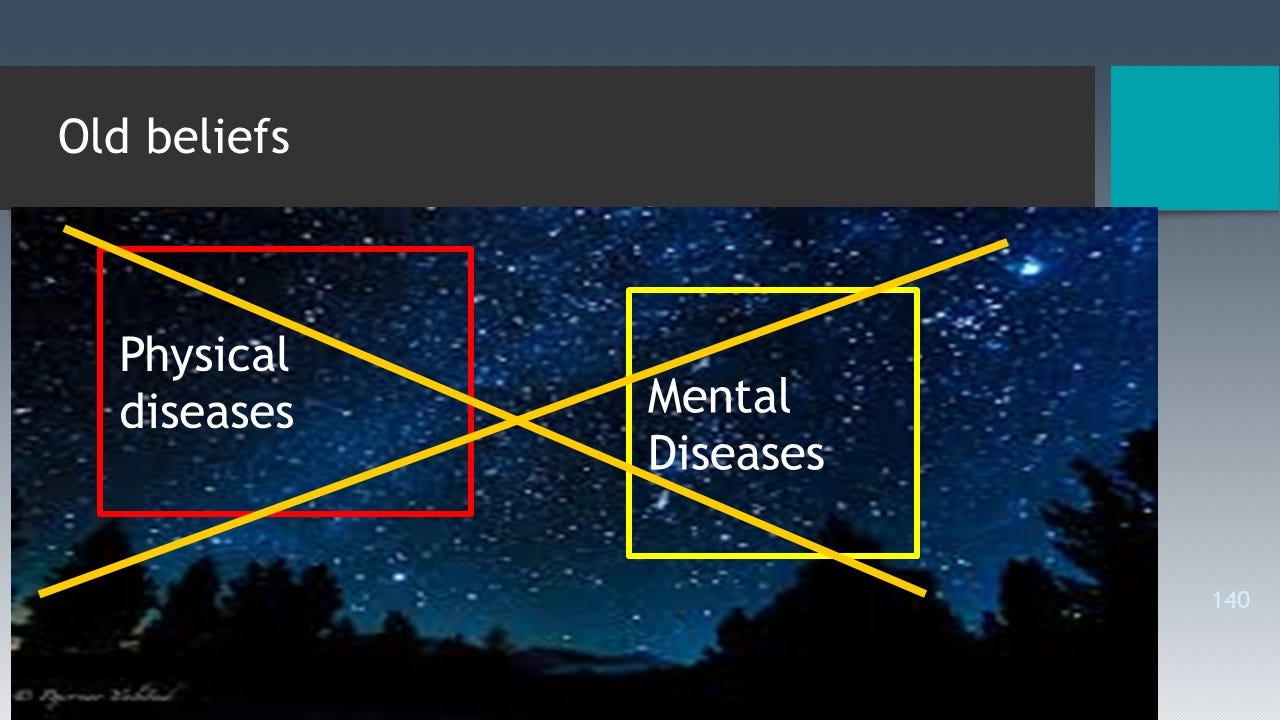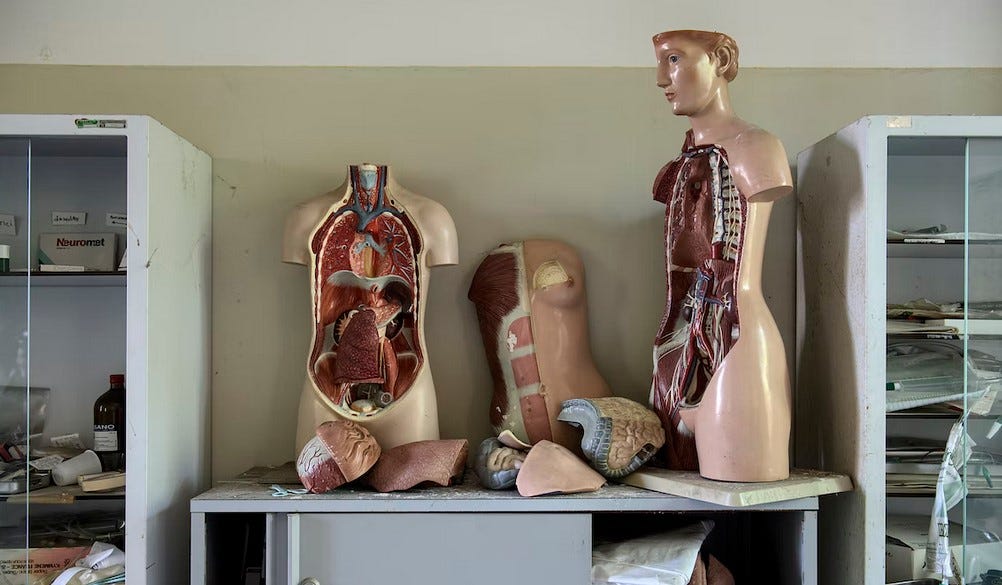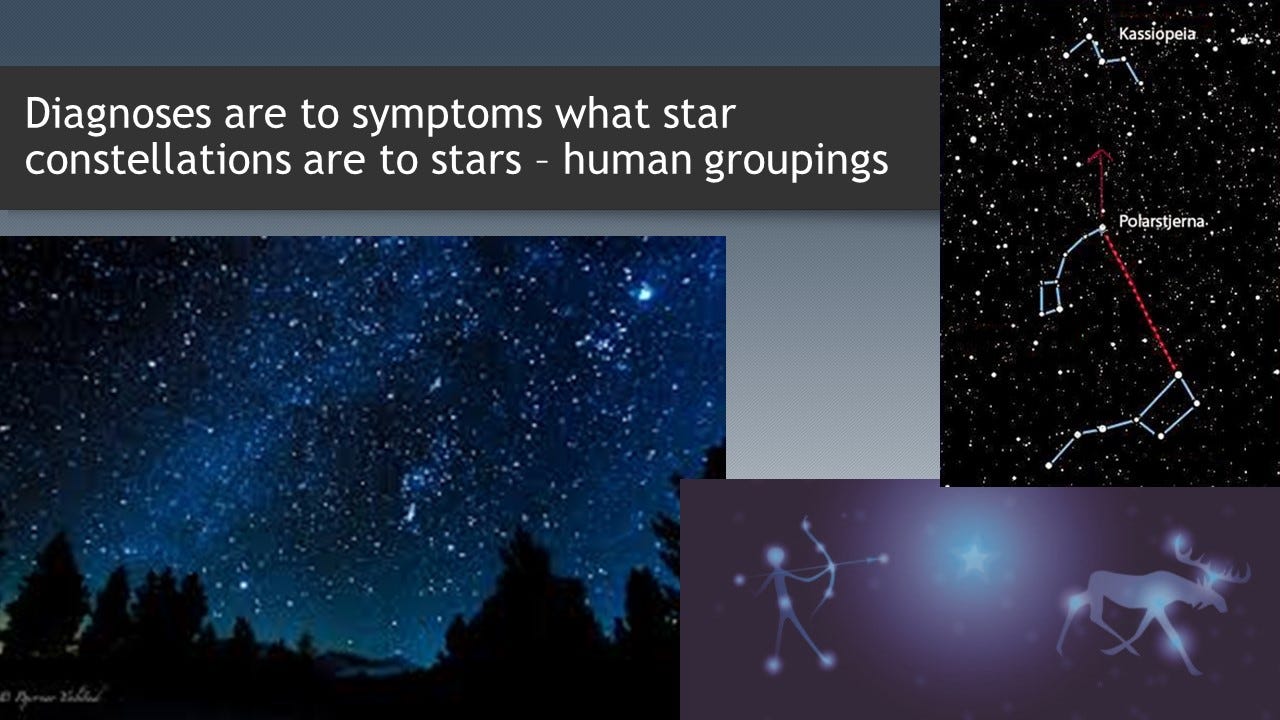I have a saying that all people have their unique basket full of stress symptoms. The more I work with clients, the more ridiculous I feel this division in symptoms is. I noticed every person has several symptoms that do not fit into the diagnoses, but are equally annoying or problematic. Do they need another, additional diagnosis to cover these? Or is it time to shuffle the information and make a new grouping based on real people?
Let go of the myth that mind and body are divided (and we have built a whole society based on mental vs physical health doctors and hospitals)
Take in a new model based on a more natural division:
The transcription of the video is below, with extra comments for clarification. It is not always easy to explain a complex theory in your 2. language.
Transcript of the video
What happens in your biological body is that when you get scared, if you get angry, if you get embarrassed for some reason, then your body is put into Fight, Flight, and Freezes and symptoms flare up after minutes or hours of stress.
So that is the biological reason for most symptoms. By addressing situations where these symptoms are bigger, we can often find the root cause and eliminate the trigger:
Why do you get embarrassed when you show your symptoms to other people, for example?
Maybe clients don't have a symptom right now and then I ask them if there was a day or moment last week when this symptom was visible.
It can be in relation to a job situation, people going to a cafe, meeting new people, or shopping, for example. There are a lot of Parkinson's people that have extra symptoms in these situations.
We can address the most annoying symptoms. For example, tremor is very annoying when you meet other people because you don't want to show this visible symptom. Most symptoms are not visible, but tremor is visible and people don't like to show that it is obvious that something is wrong.
So due to this simple logic, it's good to start to address a stressful situation where the symptoms flare up and get visible.
Any stressful situation can cause body memory and if it's a dramatic thing, we call it a trauma.
In the long run, if you experience this stressor a lot of times or it was a big trauma, you can get symptoms. Symptoms are signs of a body that is not in “rest and digest”.
When you have observed these symptoms for a period, you go to a doctor and he gives you a diagnosis. But actually, there's no sharp connection between trauma and the disease you get. I think it's far more complex than that.
So in my view of the world, I do not look at the diagnosis because diagnosis it's a human invention. Our bodies and nature don't care about a diagnosis.
That's why so many people are unsatisfied with their diagnosis because they have some symptoms that don't fit the diagnosis. So just to acknowledge the symptoms as a sign of something is going on in your body is enough for me. It's not important what the diagnosis is.
Right now, we have a view of the human body and diseases as we have on a car. If something is wrong, we replace it or we put in some new oil and then it's fixed.
Our body is not like that. We are not a collection of spare parts. We are a fine biological organism that has taken hundreds and thousands of years to develop.
That includes our cell division, how we digest, and how we keep germs and viruses away.
To sum up, this view that survival instincts (fight, flight or freeze) have a lot bigger impact on our body and health than we have thought until now.
By going into this new view, you can start helping a lot of other people. Actually, all the diseases we today call chronic or where we do not know how to help people are probably stress-related.
It's due to a body being too long in survival instinct mode.
TIME to bust the myth of diagnoses?
A lot of diagnoses are found via old cluster analysis.
Some of the symptoms a person have fit into one of these clusters, but other do not fit in. sometimes people have several diagnoses. Sometimes people are frustrated, that their symptoms do not fit into a diagnosis.
Our body does not care, and all of a person’s symptoms seldom fit into these groupings.
You see that more and more diagnosis is split into sub-diagnoses as this old paradigm do not fit real-life symptoms.
Some people say that 90% of diagnoses are stress related. Even wound healing is suppressed if a person is stressed.











Share this post